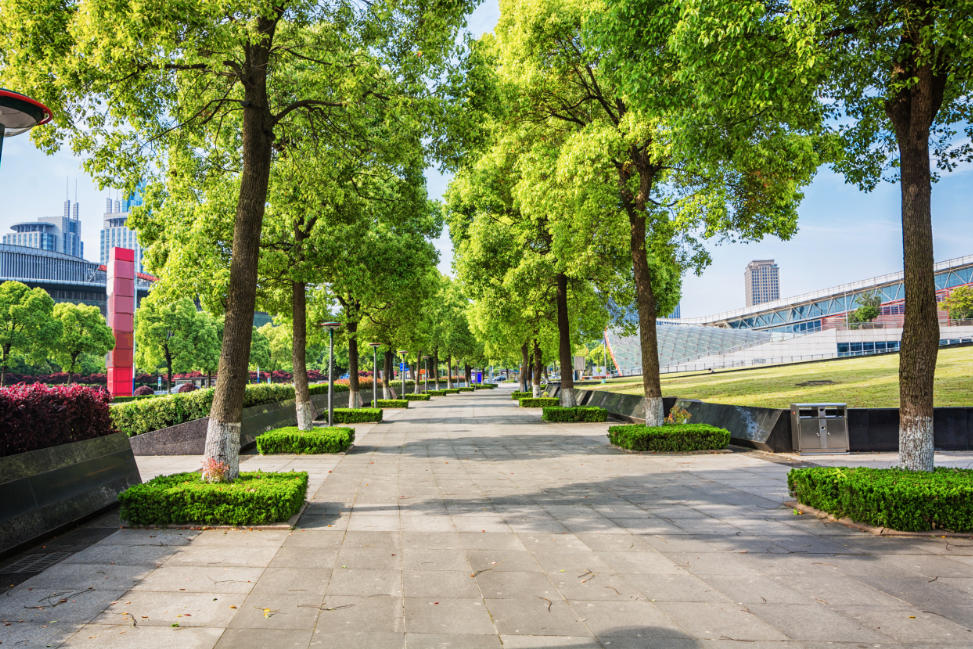
Have you ever wondered how green spaces can impact your mental health? The Danish University of Aarhus researched to find out if green spaces significantly affect your mood. In this article, we’re going to find out how natural environments impact psychological health in urban settings.
An Extensive Epidemiologic Study
The University of Aarhus, in Denmark, completed a study on the impact of green spaces on mental health. The research included data from the entire population, although it focused on the psychiatric development of children and teenagers. The conclusion of the investigation suggested that exposure to green environments such as forests, parks, and other natural spaces prevented mental disorders.
The researchers used data from the Danish Civil Registration System and the Landsat satellite to create a systemic map with natural areas in rural and urban parts of the country. Then, they evaluated the mental health of the inhabitants. Over 1 million people were involved, and the research team connected their exposure to green spaces during childhood with their mental health.
The databases provided information about the Danish population from the 1960s: geographical data, addresses, socioeconomic, and health records. Moreso, the University of Aarhus analyzed files of children, from ages 0 to 10. Lastly, the study used the normalized difference vegetation index (NDVI) to detect lush green areas by calculating the absorption of infrared light by plants.
According to the results, people who grew up with less natural space had up to 55% higher risks of developing anxiety, depression, and addictions. This conclusion suggests that natural exposure is just as valuable as family history and the socioeconomic status during childhood.
The same research team is conducting another study to find out what makes natural environments have a positive impact on human brain development. Some of the known reasons include:
- Noise pollution reduction;
- Air pollution reduction;
- Offering spaces for exposure to the sun;
- Promoting exercise;
- Exposure to useful microorganisms;
- Offering space for social activities;
Furthermore, green spaces help against stress, anxiety, depression, the more the exposure extends.
The University went on to using the best analyst team and essay writing website to make the conclusions understandable to the general population.
The study is now the most significant one regarding the correlation between mental health and green spaces. Additionally, the results can be useful to create more green urban areas to reduce psychological issues.
Tips to Improve Your Family’s Health Through Nature
Now that we know how vital nature exposure is to humans and especially to children, we must increase our exposure to natural elements.
Here are a couple of tips to incorporate more green space exposure in your life:
- Make time to take walks. The best way to improve our mental health through nature is by surrounding ourselves with it. Therefore, even with a busy schedule, you may want to find time to spend in nature with children and pets. Make sure that, when you take walks, you stay away from urban areas.
- Bring more green to your living spaces. You can’t be in nature all the time, but you can bring the park into your environment. A great way to reduce air pollution is by adding plants to your home and workspace. Areca palm, snake plant, money plant, and succulents are air-cleaning plants that can improve your sleep and productivity.
- Take care of your garden. If you have a yard, consider planting different flowers and trees. You can even create a lounge area for tea or coffee breaks.
- Upgrade your balcony. As mentioned before, some plants can act as a filter against pollution. So, even if you live in the middle of the city, a luscious plant balcony can reduce pollution entering your house. And the green view of the terrace can improve your mood through visual therapy.
- Exercise outside. Instead of going to the gym in warm months or exercising at home, consider spending time outside. The fresh air can help oxygenate your brain. Nature’s presence can also amplify the endorphins you acquire during your workout, thus improving your mood.
- Organize trips to rural places. You can opt for a weekend in grandad’s cabin or farm as a substitute for spending time in the polluted urban area. When you are organizing a family vacation, try to find naturally abundant places. Additionally, changing the scenery can break the monotony, further improving your mental health.
- Green preschool. If you have kids, you may want to find the right preschool that understands the importance of green spaces in kids’ development. Make sure that they encourage children to explore nature and to get familiar with it.
Conclusion
Exposure to green areas has a beneficial impact on the mental health of children and adults. Remember to spend as much time in nature as possible and encourage your family to do the same. Incorporate plants in your living areas as well as on your balcony and in your garden. Enjoy the sun, and don’t forget to take your pets with you.
Written by Justin Osborne
About the Author
Justin is a blogger from Leicester, England, UK. When not teaching his little students and rooting for Leicester FC, he loves to share his thoughts and opinions about education, writing for essay writing website and blogging with other people on different blogs and forums.
You may also like
5 Great Ways to Reduce Your Carbon Footprint
Find Yourself in a Good Place: 4 Benefits of Living in the Suburbs
Eco-Friendly City Living: 5 Small Changes With a Big Impact
